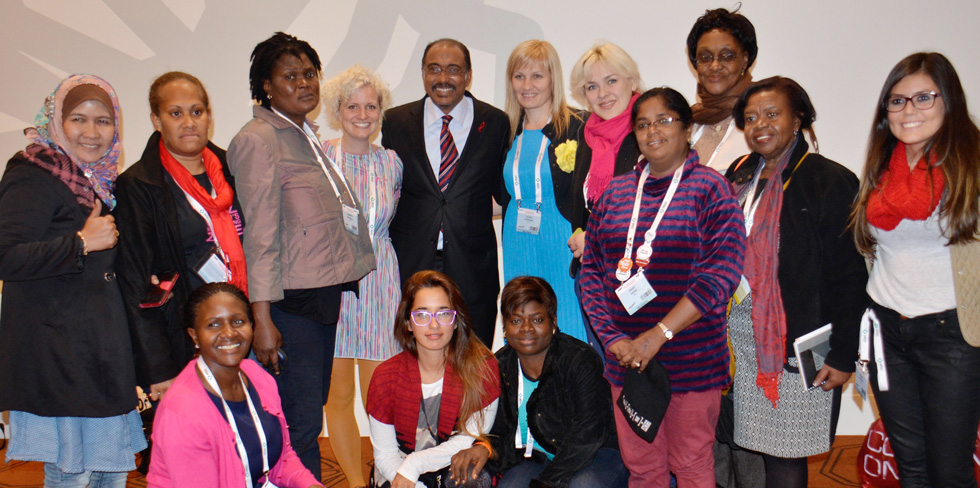Purpose and Ethos

There are over 20 million women living with HIV globally and yet we continue to be marginalized within responses to HIV; and we still identify many opportunities where women living with HIV are underrepresented or not represented at all. As women we have had a constant struggle to ensure that our issues are heard, acknowledged and dealt with. We consistently raise the fact that our lived realities are in many ways significantly different to those of men living with HIV; and as such different thinking and solutions are needed in order to address the many challenges we are facing.
We also acknowledge that as women living with HIV we are not a homogenous group – that, for example, issues facing migrant women living with HIV are not the same as those facing transgender women, nor are they the same as those facing middle class women living in the global north. Likewise, the issues of lesbians living with HIV are different to those facing HIV positive heterosexual women. Our diversity spans age, geography, the urban/rural divide, sexual orientation and gender identity, race, class, occupation, mobility – and responses to our challenges need to be complex, diverse and sophisticated.
Our history as a movement speaks to the marginalization of women living with HIV. In the 20 years much ground has been gained and there is a much greater focus on the needs of and issues facing HIV positive women, however as we approach the post-2015 agenda there is still a critical role for ICW:
- Blatant human rights abuses against women living with HIV continue in every region – ranging from the prejudices of health care providers to forced abortion and sterilization. Any gains in sexual and reproductive rights have been reversed for women living with HIV.
- Prevention, treatment and care is still very general and gender blind – research is seldom gender disaggregated, the differences in women and men’s bodies is not recognized in treatment regimes, women specific opportunistic infections do not get the resources and recognition that they require in order for us to live better and longer lives.
- Furthermore, women living with HIV are excluded from many other research agendas such as HIV and aging, PreP, gender and adherence.
- Women in ‘generalized epidemics’ are acknowledged in as far as ‘vulnerability’ is concerned but this acknowledgement does not stretch to the lives of women living with HIV.
- Women living with HIV are invisible in contexts where the focus is on ‘key populations’ – with limited or no resources for specific programs for women.
As long as the realities of our lives continue to be marginalized and sometimes ignored, ICW will remain at the forefront of the struggle for the rights of all women and adolescent girls living with HIV.
See also
-
History
Established in 1992 by women living with HIV in response to the consistent silencing and marginalizing of the concerns of women living with HIV.
-
Network of Regions
We are a network of individual women living with HIV, but we have a shared, collective agenda and work collaboratively at the local, national, regional and global levels.